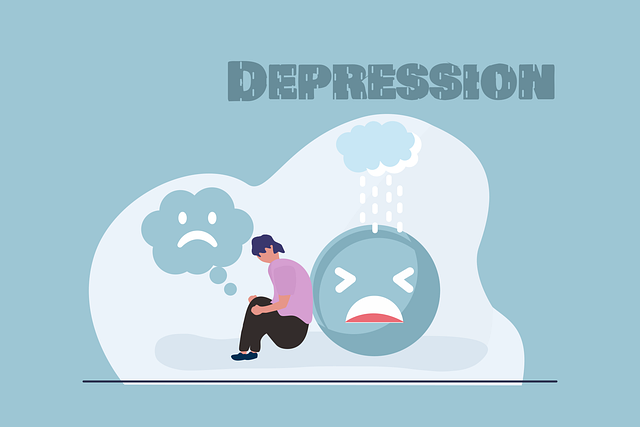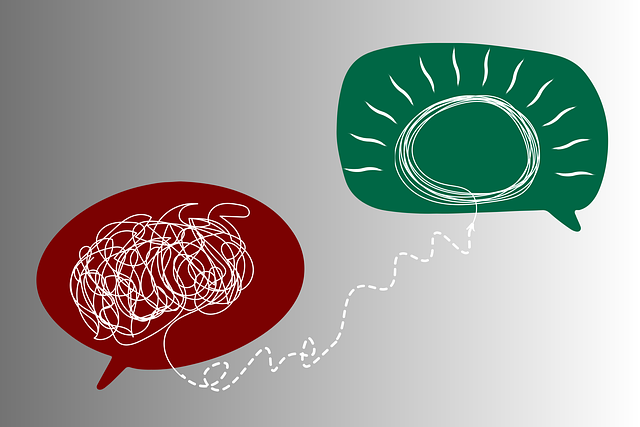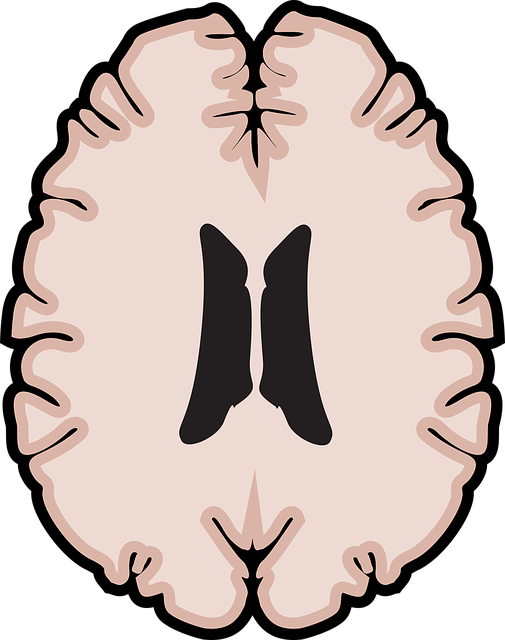Evaluating Greenwood Village Crisis Counseling Therapy (GVCCT) effectiveness requires a mixed methods approach combining surveys, emotional healing measurements, and risk assessments. Participant feedback is vital for understanding program success and areas for improvement, aligning services with client needs. GVCCT uses data analysis, including thematic and statistical techniques, to track changes in clients' well-being and service utilization rates. This data-driven strategy enables informed decisions, continuous enhancement, and tailored support, ultimately better serving individuals seeking crisis counseling through personalized care plans, workshops, and training sessions.
Greenwood Village Crisis Counseling Therapy (GVCCT) has pioneered effective mental wellness programs, underscoring the importance of robust evaluation methods. This article explores comprehensive strategies to assess GVCCT’s impact, leveraging quantitative and qualitative metrics. We delve into participant feedback as a critical component, highlighting its role in refining program effectiveness. Through advanced data analysis techniques, this piece navigates enhancements for GVCCT’s support systems. Ultimately, continuous improvement through evaluation findings ensures better mental health outcomes for the community.
- Assessing Program Impact: Methods and Metrics for Greenwood Village Crisis Counseling Therapy
- Participant Feedback: A Crucial Component in Evaluating Mental Wellness Programs
- Data Analysis Techniques to Enhance Program Effectiveness at Greenwood Village
- Continuous Improvement: Implementing Evaluation Findings for Better Mental Health Support
Assessing Program Impact: Methods and Metrics for Greenwood Village Crisis Counseling Therapy

Evaluating the impact of a mental wellness program like Greenwood Village Crisis Counseling Therapy (GVCCT) is vital to understanding its effectiveness and making informed improvements. This involves a multifaceted approach, focusing on both qualitative and quantitative data collection methods. One key metric is tracking client satisfaction through surveys, providing insights into their experience and perceived benefits. Additionally, measuring changes in emotional healing processes and emotional regulation skills can demonstrate the program’s contribution to clients’ mental well-being.
GVCCT can employ risk assessment tools specifically designed for mental health professionals to gauge the severity of clients’ conditions and monitor progress over time. These assessments help identify potential risks and inform tailored interventions, ensuring a safe and supportive environment for emotional healing. By integrating these evaluation methods, GVCCT can offer comprehensive insights into its services, facilitating continuous improvement and better supporting individuals seeking crisis counseling therapy.
Participant Feedback: A Crucial Component in Evaluating Mental Wellness Programs

Participant feedback is an indispensable element in evaluating mental wellness programs, offering a direct line to the program’s effectiveness and impact on individuals’ lives. By soliciting input from participants, organizations like Greenwood Village Crisis Counseling Therapy can gain valuable insights into what works well and areas that need improvement. This feedback ensures that the program aligns with the unique needs and experiences of its target audience.
Integrating participant feedback allows for a more nuanced understanding of mental wellness initiatives. It highlights the development of inner strength and emotional regulation skills, which are pivotal in depression prevention. This approach enables therapists and counselors to adapt their strategies, making programs more engaging and impactful. By embracing these perspectives, Greenwood Village Crisis Counseling Therapy can continuously enhance its services, fostering a supportive environment for personal growth and recovery.
Data Analysis Techniques to Enhance Program Effectiveness at Greenwood Village

At Greenwood Village Crisis Counseling Therapy, evaluating mental wellness programs requires a robust data analysis approach to ensure their effectiveness. Qualitative and quantitative techniques are employed to gain profound insights into participant experiences and program outcomes. This method involves analyzing survey responses, interview transcripts, and attendance records using thematic analysis and statistical methods. By identifying patterns and trends within the data, therapists can pinpoint areas of success and potential gaps in the services offered.
For instance, tracking changes in clients’ positive thinking scores over time through pre-and post-program assessments provides tangible evidence of the therapy’s impact on mental wellness. Similarly, analyzing trauma support service utilization rates helps in understanding which aspects of the program resonate most with participants. This data-driven approach allows therapists at Greenwood Village to make informed decisions, continually improve their services, and better cater to the unique needs of those seeking crisis counseling.
Continuous Improvement: Implementing Evaluation Findings for Better Mental Health Support

Continuous improvement is a cornerstone of any effective mental wellness program. By implementing evaluation findings from services like Greenwood Village Crisis Counseling Therapy, organizations can enhance their support systems and better cater to individual needs. This process involves actively integrating feedback, identifying areas for growth, and strategizing changes that promote positive outcomes. For instance, the Mental Wellness Podcast Series Production can offer valuable insights into client experiences, enabling therapists to adapt their approaches and create more personalized care plans.
Moreover, cultivating inner strength development and fostering cultural sensitivity in mental healthcare practice are essential components of this cycle. Therapists can use evaluation data to design workshops or training sessions that empower clients with coping strategies and help them build resilience. Simultaneously, recognizing and respecting cultural differences ensures inclusive and effective treatment, benefiting from the Cultural Sensitivity in Mental Healthcare Practice to create a supportive environment for all individuals seeking mental health services.
Evaluating mental wellness programs, such as Greenwood Village Crisis Counseling Therapy, requires a multi-faceted approach. By combining assessment methods that measure impact, participant feedback for firsthand insights, data analysis techniques to unearth trends, and continuous improvement strategies based on findings, we can optimize program effectiveness. Implementing these evaluations ensures Greenwood Village Crisis Counseling Therapy not only meets current needs but also adapts to evolving mental health challenges, ultimately fostering better support for the community it serves.














